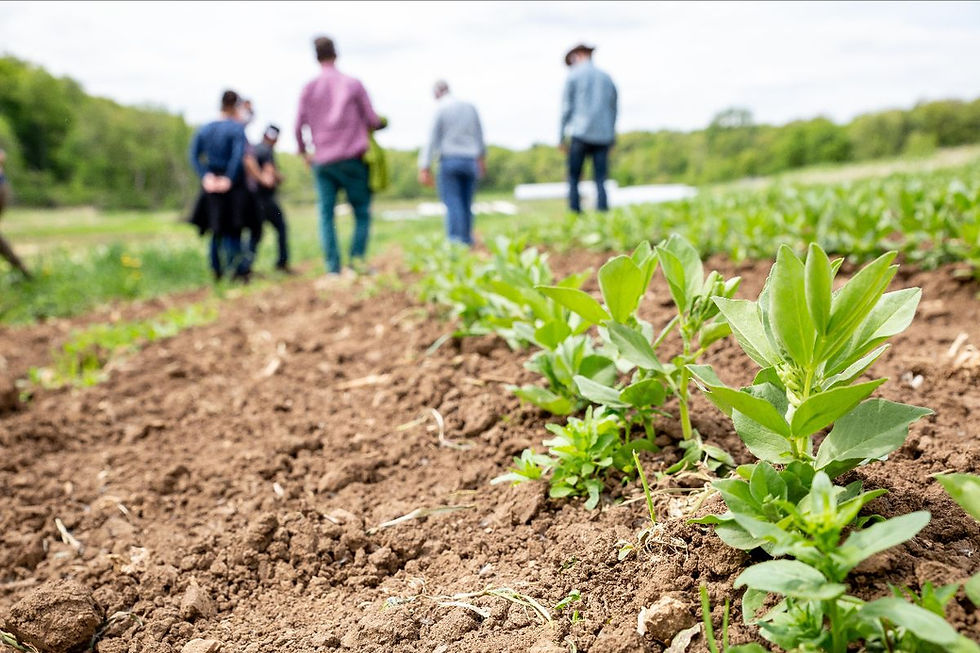From Challenges to Change: Building Better Farm Labor Experiences
- Sam Hsieh

- Jul 7, 2025
- 2 min read
Farming is so many things.
It’s land stewardship, community care, and growing beautiful food. It’s also physically demanding, can be all-encompassing, and is usually full of best laid plans that sometimes go right but other times require last-minute pivoting.
Ultimately, it’s the hands in the dirt that make smaller scale diversified farming possible in our region. And those hands belong to both farm owners and hired farmworkers.

It’s pretty common for farming and other labor-intensive industries to be viewed as unskilled. The thought that, “It’s hard work, but it’s not all that complicated.”
At FairShare, we recognize farm work as skilled work. One of the ways we are supporting this is through the Organic Vegetable Farm Manager Apprenticeship program - the first of its kind in the country!
Apprentices work side by side with experienced farmers to learn the ins-and-outs of what it takes to run an organic vegetable farm. In doing so, the program connects established farms with dedicated longer-term employees who are motivated to learn, and offers a structure for apprentices to develop their skills while being paid a progressive wage.
While they move through the day-to-day work, farmers are also constantly contending with – you guessed it: weather. And despite what the weather may be, the reality is that farmers often need to be out in the field for some period of time most days.
As we see more days with unhealthy air quality and as temperatures rise, questions of what farming can - and maybe should - look like during these conditions are moving to the forefront. In response, FairShare is connecting farmers with tools and resources that will help keep people safe in real time while also building safety into their farm cultures.
As conditions for farm work continue to evolve, we are committed to supporting our growers to weather those conditions while valuing their labor as they work to feed our communities.
Resources:





There’s no pause button in Tunnel Rush Game — only the thrill of survival. It’s a mesmerizing dance between danger and control, where instinct takes over and every turn feels like a heart-stopping leap of faith.
A significant aspect of the Tigro Club Game community is the vibrant, though sometimes polarizing, online discussion groups where users share strategies, referral codes, and warnings about withdrawal issues.
I appreciate the article's focus on improving farm labor experiences, especially highlighting the importance of fair wages and better working conditions. It's crucial to recognize the challenges faced by farmworkers and advocate for systemic changes. Interestingly, Walmart has been involved in initiatives like the Fair Food Program, aiming to enhance farmworker conditions through enforceable standards and partnerships with organizations like the Coalition of Immokalee Workers. This program has been credited with eradicating modern-day slavery and forced labor on participating farms, demonstrating the impact of corporate responsibility in supply chains.
This whole food access thing is so crucial. Kids getting excited about veggies? That's a win! Check out this little game to lighten your mood while thinking about fresh food:Google Block Breaker.